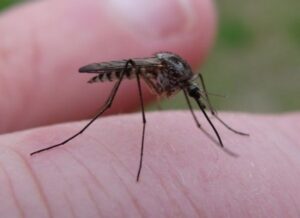Will Millions of GMO Mosquitoes Be Released in Key West?

The Food and Drug Administration is considering a proposal seeking the approval to release millions of mosquitoes into Key West that have been genetically modified by the British technology firm, Oxitec. If approved, the decision would make the laid-back popular vacation spot the backdrop for a very controversial experiment.
The genetically engineered mosquitoes are designed by Oxitec to self-destruct soon after hatching and mating, which the company claims would decrease the spread of the nuisance insects and the diseases they often carry, including dengue fever. Releasing the self-destructive GMO mosquitoes (all male) would allow them to breed with females—who do all the biting—and create offspring that die before reaching maturity.
Oxitec has released its genetically modified mosquitoes in the Cayman Islands, Brazil and in Malaysia to combat the serious illness. But Key West hasn’t had a reported case of dengue since late 2010, according to city records. While very serious and painful, dengue fever rarely develops into the more serious life-threatening version, dengue hemorrhagic fever.
Critics of the program say that Oxitec’s previous mosquito releases were done so without informing the local communities of the potential risks. And any mass annihilation of a species has major effects within ecosystems—even the loathed mosquito—and environmentalists fear the repercussions could have unintended devastating effects on the region’s biodiversity.
The issue comes as more and more Americans are showing serious concern over the use of biotechnology—be it in food, fuel alternatives, fiber or disease prevention. The largest number of signatures on a petition submitted in the FDA’s history was the recent call for mandatory labeling of all foods containing genetically modified ingredients. The California Department of Food and Agriculture estimates that 80 percent of processed foods sold in the U.S. contain GMOs.
Keep in touch with Jill on Twitter @jillettinger
Image: wild_turkey5300

